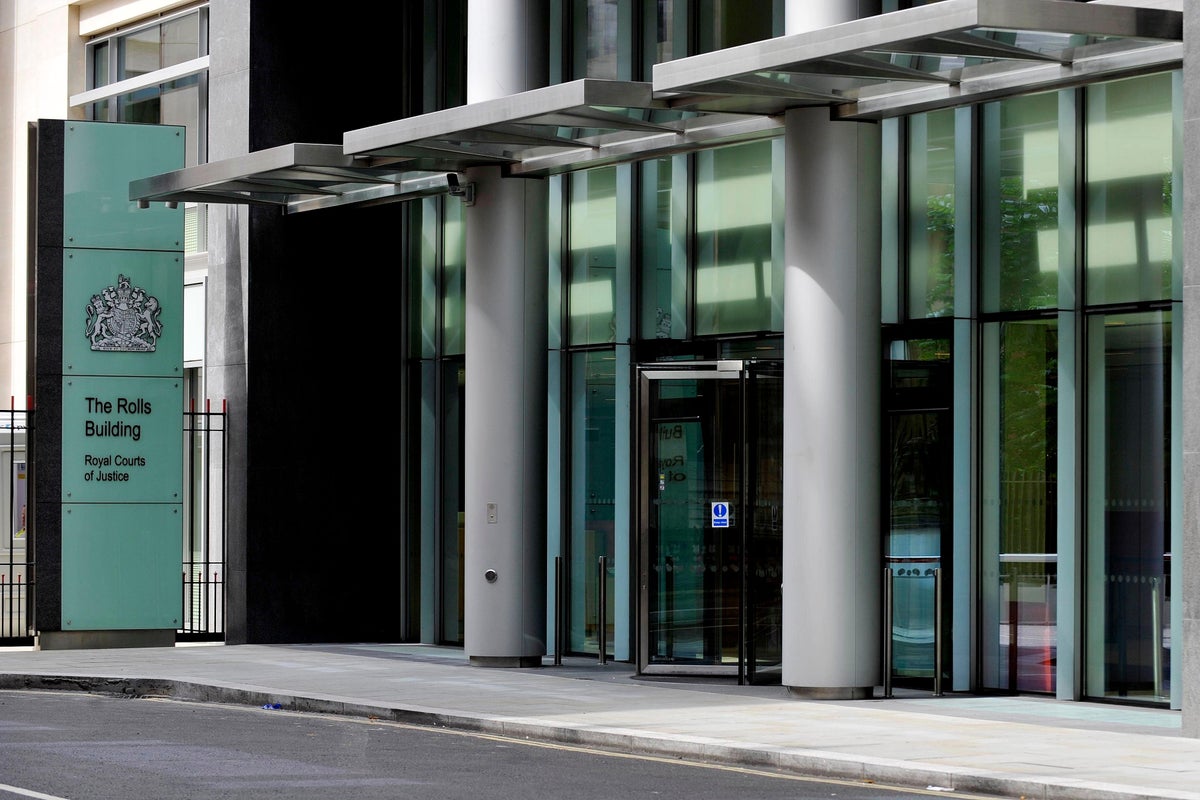
A multi-millionaire watch tycoon has won the latest court battle in a decades-long dispute with his younger brother, after being accused of trying to “cheat” his sibling out of part of their late father’s fortune.
Marcus Margulies, who was worth £135 million in 2018 according to the Sunday Times Rich List, faced allegations at the High Court in London that he had concealed funds from a “secret” trust held in a Swiss bank account that should have been inherited by his brother Stephen Margulies.
Stephen alleged he was owed a “substantial” share of money placed by his father in a now closed UBS account in the late 1980s, which had since been transferred to Marcus.
But a judgment on Thursday concluded that Stephen’s claim should be struck out as an “abuse of process” with it having “no realistic prospect of success”.
No amount of protestation by Stephen that he has an arguable case which should be allowed to go to trial could give his case a realistic prospect of success— Sir Julian Flaux
The ruling from Sir Julian Flaux brings to a close the sixth set of proceedings which began in the 1990s between the brothers over their inheritance.
The court was told that their father, Alexander Margulies, died in 1991, with the terms of a 1982 will leaving his entire estate to Marcus.
From 1978, Alexander and his wife Stella had become “increasingly concerned about Stephen’s lifestyle and the influences on him in Peru, where he was then living”, Sir Julian said in his ruling.
This included concerns that parts of their “valuable collection of works of art” would end up in the “unsuitable” South America country.
Alexander had by this time turned Time Products – the company now behind luxury brands Sekonda, Accurist and Limit – into a successful business.
Marcus, who was born in 1942, became chairman of the firm in 1976, having spent all his working life there.
In 1993, Stephen, who only ever worked at the watch business for six months in 1966, won a legal challenge supported by his younger sister Judith to formalise their mother’s 1971 will that gave all three siblings an equal share of her estate.
Stephen subsequently discovered that Judith and her husband Cesare Sacerdoti had received a “gift” of funds from Alexander held in Swiss bank accounts, prompting him to make enquiries.
In the late 1990s, Stephen, born in 1945, brought failed court bids to secure entitlement to a third of his father’s wealth, amounting to a “very substantial fortune”.
Sir Julian said that Stephen’s own investigations into the UBS account meant he had “convinced himself that he has some equitable entitlement to the funds in the account and that Marcus is concealing the true position to cheat Stephen out of that entitlement”.
Stephen previously claimed in draft court documents that his father had written to him in 1988 “about letting bygones be bygones and starting afresh”.
He also separately alleged that his father told Marcus’s ex-wife that his brother should deal with him “fairly” after his death and “would give him his share”.
Sir Julian said Stephen used an October hearing to make “outrageous unsubstantiated allegations” about his brother “concealing the truth” and previously “misleading” the court.
“This is obviously something of which he has convinced himself over the years, no doubt because he cannot accept that his father cut him out of his will,” the judge said.
Stephen also alleged that the use of Swiss banks by his father could have been for “manipulation and flexibility for the purpose of cheating the Inland Revenue”, while also arguing that the bid to strike out his case would be a “crook’s charter”.
Lawyers for Marcus argued the case should be struck out as it was the same as the legal proceedings previously rejected by a court.
They noted the Court of Appeal concluded that Alexander had not “manifested an intention to create a trust for Stephen’s benefit” and Stephen accepted he had “no documents that provide positive proof as to Alexander’s intentions with regard to the UBS account”.
Sir Julian concluded that Stephen’s case was “estopped” as it raised the same issues as the previously failed litigation.
He said Stephen had made “unwarranted” and “outrageous” assertions that Marcus was “dishonest” or “lying” in relation to court proceedings.
The judge said none of the matters he now relied on “supports a case that Alexander manifested an intention to create a trust in Stephen’s favour over assets in Swiss bank accounts or over anything else” and was “bound to fail”.
“No amount of protestation by Stephen that he has an arguable case which should be allowed to go to trial could give his case a realistic prospect of success,” the judge concluded.







